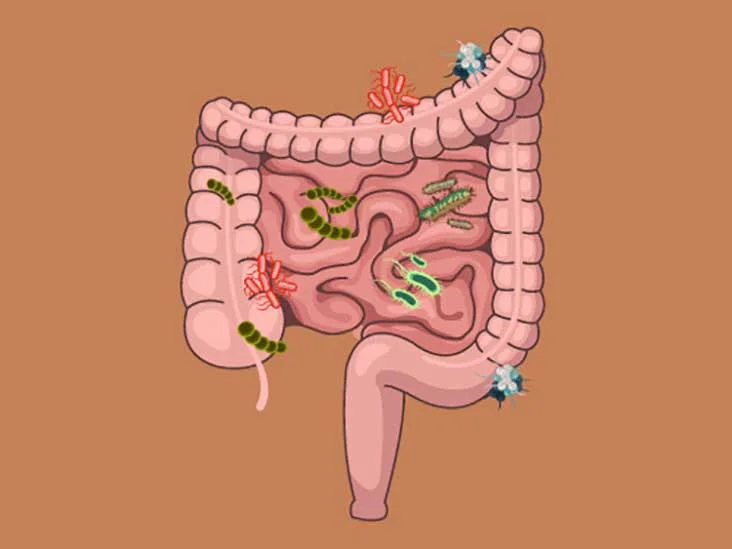We have recently learnt that 95% of the serotonin in your body comes from your gut, which has made us want to find out what we can do to improve our gut health which should in return, improve our overall mental and physical health. While research is ongoing, it appears clear that your gut health plays a role in many areas of your health and well-being.
Symptoms of an unhealthy gut could be any of the following:
- Digestion problems – this could be diarrhoea, constipation, gas, bloating or heartburn
- Weight changes – if you’re eating the same amount and exercising the same amount but are gaining weight unintentionally, this could be the sign of an unhealthy gut
- Skin conditions – skin conditions like psoriasis can be linked to types of bacteria in the gut
- Depression/anxiety – whilst there could be lots of reasons behind anxiety and depression, having an unhealthy gut could affect your mood due to the amount of serotonin that your gut creates. A healthy, happy gut will contribute to creating more serotonin.
We’ve researched the easiest, most effective ways to improve your gut health. We appreciate that having Cauda Equina can make some of these changes difficult, but making just a couple of these changes could help ease some of the above symptoms.
- Get enough sleep. Whilst this is easier said than done, getting 6-8 hours of sleep each night is really important
- Take a prebiotic or probiotic. You could get these in capsule form, or you could incorporate them into your diet. Examples of these types of foods are probiotic yoghurts and drinks, green vegetables, raw cheeses, apple cider vinegar, raw milk, wholegrains, garlic, nuts, broccoli, beans.
- Antibiotics- antibiotics are great for killing harmful bacteria in the body that might be causing us problems, but they also kill the good bacteria at the same time. You should only take antibiotics when you really need them.
- Keep hydrated – drinking lots of water can help
- Avoid certain foods – some foods can affect the bacteria in your digestive system. You should to try to minimis your intake of: red meat, breads, cakes and biscuits made from white flour and white sugar, fried foods, alcohol, caffeine.
- Exercise – Regular exercise accelerates the digestive process, increasing the different kinds of microbes in the gut, and encouraging bacteria to flourish.
One of our group members also recommended a book call ‘Gut’ by Guilia Enders, which is all about your digestive system and how it can affect your overall health.
